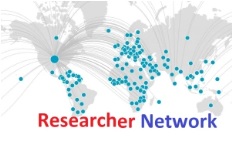Home

Building an Intercultural Pedagogy for Higher Education in Conditions of Conflict and Protracted Crises: Languages, Identity, Culture!
BIPHEC at a glance:
BIPHEC is implemented in response to a call by the Arts and Humanities Research Council (AHRC) under the Global Challenges Research Fund (GCRF) to explore the contribution that arts and humanities research can make to education and learning in low and middle income countries (LMICs) in contexts of people’s movement as resulted from war, civil unrest, conflict, forced migration and other forms of protracted crises. BIPHEC will initiate an agenda for developing intercultural education pedagogies in formal and non-formal learning contexts focusing on languages, culture and cultural heritage, multiple identities, and representations—concepts central in arts and humanities research concerning an individual’s identity, belonging, and wellbeing. A related purpose is to build UK and LMIC arts and humanities cross/inter-disciplinary and cross-border capability through links among academics, teachers, and students in higher education, and populations in the community (e.g., refugees and asylum seekers, minority and indigenous groups, migrants, and people who are displaced or excluded, and who have limited or no access to education) and the community groups, NGOs, charities, and other individuals who support them. The transnational network will draw on international academic investigators in applied linguistics, education, intercultural communication, languages, and theology in five countries (Brazil, Colombia, Palestine, Turkey, and the United Kingdom). The research network (consisting of the Principal Investigator and five Co-Investigators, and supported by a four-member advisory group) will engage and dialogue with other teachers and students in higher education (HE) and with people affected by conflict and protracted crises through a series of workshops. Through the network, the PI and Co-Is will initiate the co-construction of locally-generated, context-specific intercultural education pedagogies in four case-study sites (Bogota, Gaza, Istanbul and Durham) that support the development and capabilities of researchers, educators, teachers and students in HE, and displaced, marginalised, and excluded people, both young and older. The network will also generate local understandings of global citizenship, youth responsibility and participation.













